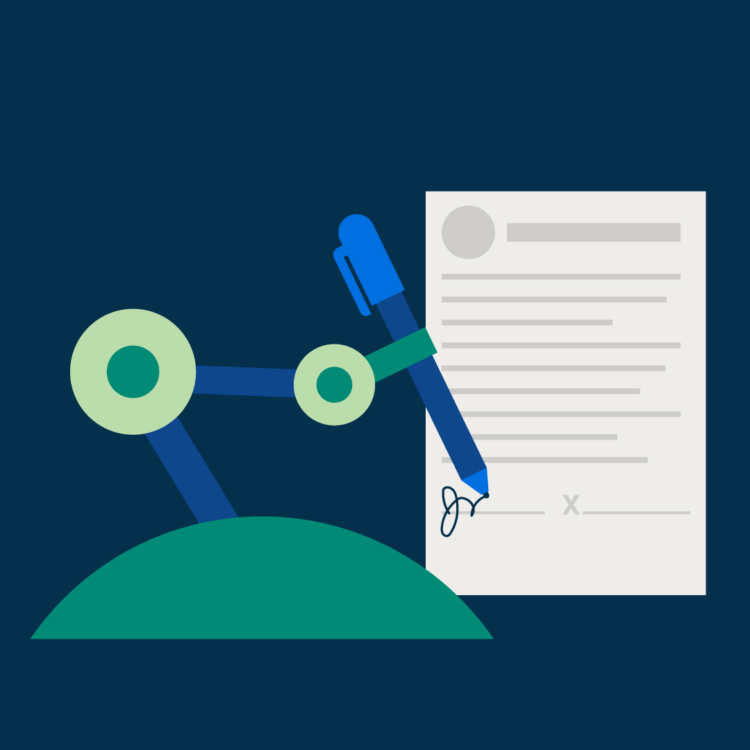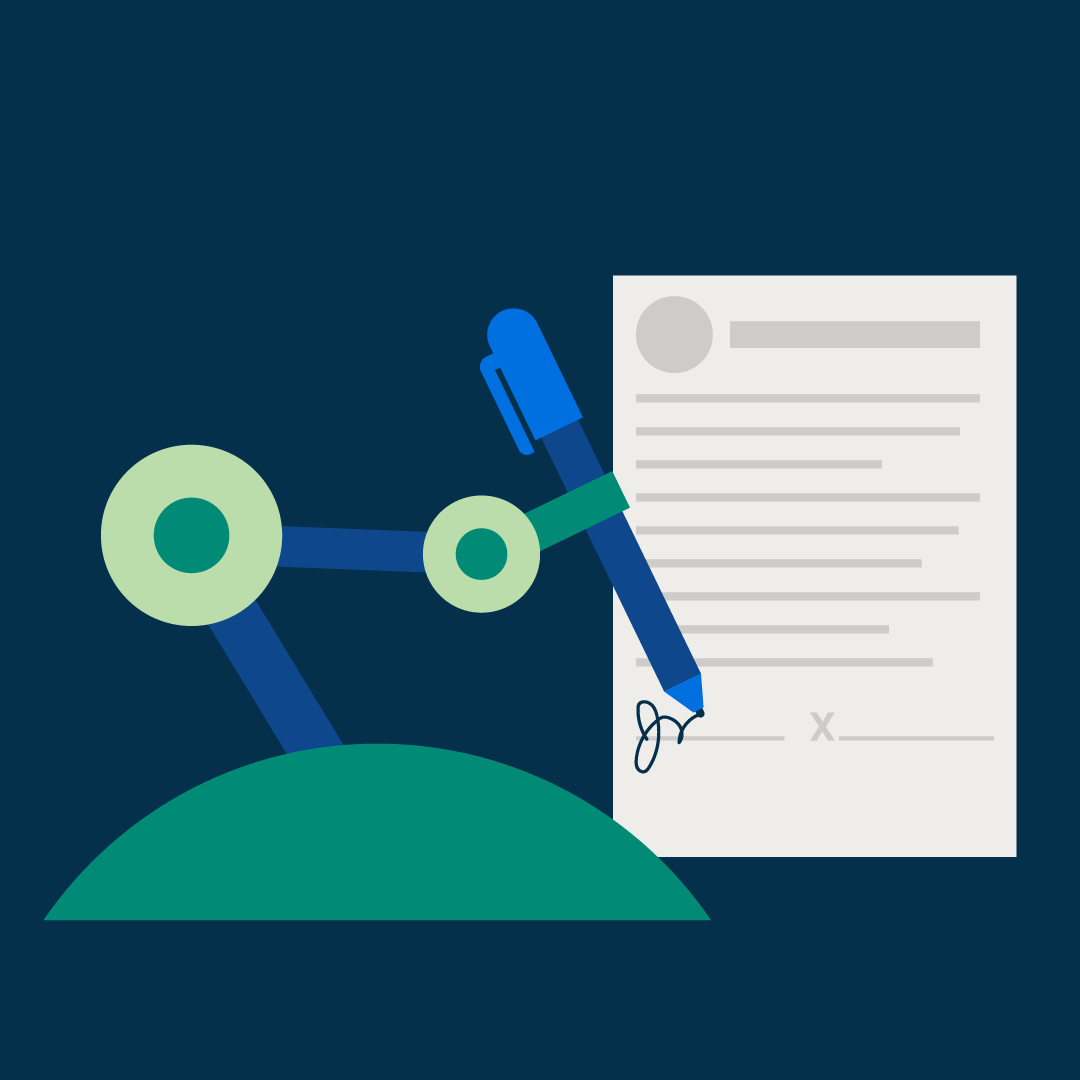There’s no denying that technology has reshaped the legal industry—with legal tech tools making it easier for lawyers to work more efficiently and effectively—and artificial intelligence (AI) is no exception.
AI tools for lawyers can help law firms streamline processes, increase productivity, and reduce costs.
But, with so many AI tools available, how can you choose the best options for your firm?
Here, we explore some of the most widely-used AI tools that legal professionals can use to improve law firm operations—and how to choose the best options for your practice.
(And, if you prefer video to the written word, you can learn more about using AI in your law firm in Clio’s on-demand AI webinar led by two AI experts.)
AI tools for lawyers
AI is a complex and rapidly-evolving science in itself, with new uses and advances made almost daily. As part of this larger technology industry, lawyer AI offers a multitude of opportunities and considerations for the legal profession.
While AI-powered tech tools can unlock new efficiencies for lawyers, we don’t yet fully understand the comprehensive impact or potential uses of such tools. And, for a compliance-driven profession like law, that means a cautious approach is best.
As the legal industry works towards understanding the full scope of possibilities and considerations for AI, you can consider several powerful AI-driven tools to help your practice law more efficiently and become more client-centric.
Benefits of AI tools in your law firm
- Boosts productivity: AI tools can be used to automate routine and repetitive tasks, which improves your firms workflow.
- Saves time: AI can analyze and process more information than a human can, in a matter of seconds, saving you precious time. And that time saved can be passed along to your clients.
- Produces higher quality work: Humans can be error-prone, especially when doing repetitive tasks. AI can produce work that is consistent, such as review documents for inconsistencies or missing clauses.
- Improves client experiences: When you’re free from low-level tasks, you can spend more time doing legal work, which translates into building better experiences, serving more clients, and running a client-centered law firm.
Remember: AI will never replace the judgment and experience of lawyers. But AI tools for lawyers can be leveraged to quickly sift and analyze big data, automate routine tasks, and produce high quality work, which enables lawyers to focus on what matters most: their clients.
You can read more about AI in our resource hub, AI for lawyers.
9 AI tools lawyers can use
As you can see, there are some incredible AI tools available for lawyers. But, understandably, with so many options on the market now, it can be overwhelming to know where to start looking, whether you are a technical or non-technical person.
Here are some of the most popular and highly anticipated AI tools in law firms on the market right now.
Casetext
Casetext is a legal research platform that uses AI to help lawyers find relevant case law, statutes, and regulations quickly and efficiently. Casetext has been around since 2013, applying cutting-edge AI to the law to create solutions that enable attorneys to provide higher-quality representation to more clients, enhance efficiency and accuracy, and gain a competitive advantage.
And, because Casetext integrates with Clio, legal professionals can start legal research tailored to their litigation right from their Clio dashboard, and save research directly to the matter.
CoCounsel
CoCounsel is an large language model powered by OpenAI and Casetext, mentioned above. This AI tool is a legal assistant that is knowledgeable, reliable, and secure enough to support the practice of law.
What sets this tool apart from other large language models is that it was trained for the law. Attorneys and AI specialists have rigorously and repeatedly tested this OpenAI-powered solution tailored to lawyers’ needs and reliable and secure enough to meet the highest bar.
What’s more: CoCounsel uses dedicated servers to access GPT-4, meaning your data isn’t sent to “train” the model as part of publicly accessible knowledge.
Harvey AI
Using a mix of different types of AI—natural language processing and machine learning—Harvey AI is an AI-powered legal research tool that’s touted as “unprecedented legal AI.” Similar to the AI bot ChatGPT, Harvey AI is built on a version of Open.AI’s GPT AI, while also using general legal data (like case law) and a law firm’s own work products and templates to specifically support legal work.
Though it’s still in beta, Harvey AI will be able to assist firms with tasks like contract analysis, due diligence, litigation, and regulatory compliance, while also helping to generate data-based insights, recommendations, and predictions.
Blue J L&E
Blue J’s AI-powered platform is designed to streamline legal research and analysis, helping lawyers predict the outcomes of legal cases and analyze complex legal issues.
Using AI, the tool identifies similar decisions based on things like factors and outcomes, instead of keywords, for fast and more-accurate research and analysis.
Lawyers can also use the tool’s findings to plan, create reports, and more.
ChatGPT
We can’t forget the ever-popular generative AI tool.
ChatGPT is an AI-powered chatbot from OpenAI that responds to open-ended text queries with paragraphs of text-written answers. It was trained through reinforcement learning from human feedback.
This generative AI tool can be used by lawyers to create legal documents, such as contracts, leases, and wills, conduct legal research, and so much more.
Just remember: While innovative and useful, generative AI tools like these can “hallucinate,” making up false information in their responses. And you should always be mindful of the information you are feeding it and ensure you’re fact-checking with other sources. Read more in our blog post, where we discuss ChatGPT at length.
Diligen
Reviewing contracts can be time-consuming and tedious, but Diligen helps make the review process more efficient. Using Diligen’s machine learning-powered analysis, you can conduct due diligence to review contracts for specific clauses, provisions, or changes and quickly output a convenient summary.
And, to further streamline your workflows and review contracts even faster, lawyers and legal professionals can also import documents directly between Diligen and Clio’s document management software for efficient document organization.
Auto-GPT
A new technology (it was launched in March 2023), Auto-GPT is one of the latest iterations of AI, described as “an experimental open-source attempt to make GPT-4 fully autonomous.” Put simply, the technology uses OpenAI’s text-generating AI models (mainly GPT-3.5 and GPT-4) paired with a companion bot to respond to queries and “think through” complex tasks “autonomously.”
As a potential AI tool for lawyers, Auto-GPT could, hypothetically, assist lawyers with creating their legal strategy in response to a lawyer providing a specific “goal.” In this speculative example, Auto-GPT could theoretically respond to a human prompt to perform tasks, make decisions, and “think through” the strategy—ultimately offering specific insights for the lawyer to consider.
Smith.ai
Helping your firm stay responsive without using the time of dedicated reception staff, Smith.ai is an outsourcing platform that uses a “virtual receptionist” to answer calls for lawyers and law firms. The virtual receptionist is an actual human, but Smith.ai uses AI with its chatbot features and when deciding how to log and route calls. Both the receptionist and chat features integrate with Clio.
Gideon
Another AI-powered chatbot to consider, Gideon, which also integrates with Clio, is a client intake and document automation tool that learns how to answer prospect questions and qualify leads effectively for a more-effective intake process. In many cases, Gideon can completely replace long, friction-heavy intake forms with a simple conversation.
How to choose the right AI tool for your firm
When considering integrating an AI tool into your practice, it’s important to be select a tool that works for you and your firm. Here are some factors to consider when selecting AI tools for a law firm.
Evaluate security
As a lawyer, you handle highly confidential and sensitive client data. You want to ensure that whatever AI tool you go with will have stringent security protocols. Look for both internal and external security resources and make sure that any provider you choose follows industry-leading security networks and data privacy.
Identify the specific needs of your firm
While it can be exciting to see the variety of new and useful AI tools for lawyers, not every firm needs to implement every tool—and adopting too many tools at once without a plan is likely not the most effective strategy.
Instead, audit your firm for specific areas and tasks that are the most time-consuming and tedious (like manual contract review or legal research)and then look for potential AI-powered solutions that can help you augment those tasks.
Consider the user interface and ease of use
An AI tool can be incredibly innovative, but consider the end user, who is often a non-technical person. If the application is complex or it’s interface too difficult for legal professionals at your firm to navigate and use reliably, it may not be the best fit.
Does it come with integrations?
Another factor that can make AI tools even more useful for lawyers is integrations. If a potential AI tool already integrates with your legal case management system it can add further efficiencies to your workflows. For example, Casetext integrates with Clio, so you can easily keep your research organized by saving cases from Casetext to Clio.
Consider the vendor’s reputation and support
Beyond just looking at the features of a specific AI tool, it’s a good idea to also evaluate the vendor. How long have they been in business for? Do they have a less-than-favorable reputation? Any news of security breaches or data leaks? What is their customer support like? An amazing AI tool that lacks adequate client support may result in lost time and frustration for your law firm.
Is it AI hype?
Another good question to ask yourself: Is this a tool that will actually benefit your firm or is it part of the AI hype machine? There are some incredible AI tools out there, and some have realistic claims, while others may be exaggerating, according to the FTC.
We recommend looking for solutions where the underlying concept is easy to understand. It’s also good to consider how long they’ve been in business for; are they jumping on the AI bandwagon or have they been around for much longer? This is where doing research and talking to sales teams and asking every question and use case imaginable will help you get a solid understanding of what you stand to gain.
Final thoughts on AI tools for lawyers
AI is not a replacement for lawyers, but the right AI-powered tools can help lawyers work more efficiently and productively while reducing costs. Always evaluate any potential AI tool to ensure it’s a good fit before embracing them, and remember that the right AI tools, used responsibly, can help law firms stay competitive and provide better service to their clients.
To learn more about how to responsibly start adopting new AI tools at their firm, watch Clio’s on-demand AI webinar led by two AI experts.
When to Use AI at Your Law Firm
Thinking about using AI at your firm? Watch our CLE webinar to discover the do’s and don’ts, and when to use AI at small and mid-sized firms.
Watch Now

